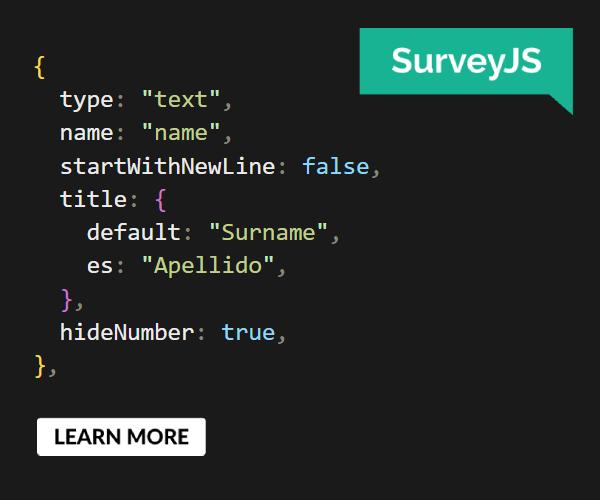What I Wish Someone Had Told Me About Freelancing
I’ve been freelancing as a brand identity artist for about a year now and there are some things I have learned along the way. I researched a lot of articles about freelancing but all of them tended to say the same things, like don’t quit your day job until you have a solid plan in place, be prepared to market yourself, get to know your tax laws, etc etc etc. While this is all great advice, there are still some things that I feel people should have told me…
Further Reading on SmashingMag:
- How To Identify and Deal With Different Types Of Clients
- How To Convince The Client That Your Design Is Perfect
- Turning All Clients Into Dream Clients
Dealing with Clients
Not all clients are going to be fantastic to work with.
In fact, many will contact you for work and then turn into ghosts once you tell them how much you charge. There will also be clients that you will wish you had never agreed to work with. Some will absorb your time and not care about the extra mile you are going to so that they can be happy. You have to learn very quickly how to spot these people and also learn how to handle them. However, no other designer will be able to tell you exactly how you should handle these types of clients because the choice is ultimately up to you and what you feel comfortable with.
Fantastic clients are worth their weight in gold.
On the flip side, an amazing client is something you won’t ever want to loose. Keep in contact with these clients even after the work is over. Even if you don’t see another project on the immediate horizon, that doesn’t mean that they won’t have one. Also, they may have a friend or one of their own clients that they could pass your name on to. Keeping in touch with them will keep you at the front of their minds for such an occasion. Send them holiday cards, attend their special events if you can, or just shoot them a “Hi, How are you?” email every once in a while. Basically, if you have the fortune of finding a fantastic client — don’t ever let them go.
Your clients want your advice — don’t be afraid to give it to them.
Most people hire a designer because they have no idea what they want. It’s your job to work as their guide to design. Be ready to take them from point A to point Z in a time efficient and cost effective manor. Always let your client know that you are available to answer any questions they may have. Also, if they have an idea that you feel may not be the best, be prepared to tell them — but in a kind way that won’t make them feel as if you are blowing them off. Keep in mind that this project may mean more to them than it does to you and they could have some emotional ties to their ideas. However, in the end, you are in charge and that is what they are paying you for so have confidence in your instincts and be ready to back them up with visuals.
It’s OK to “fire” a client.
Most people hire a designer because they have no idea what they want. It’s your job to work as their guide to design. Be ready to take them from point A to point Z in a time efficient and cost effective manor. Always let your client know that you are available to answer any questions they may have. Also, if they have an idea that you feel may not be the best, be prepared to tell them — but in a kind way that won’t make them feel as if you are blowing them off. Keep in mind that this project may mean more to them than it does to you and they could have some emotional ties to their ideas. However, in the end, you are in charge and that is what they are paying you for so have confidence in your instincts and be ready to back them up with visuals.
Dealing with Equipment and Software
Research your programs before you install them.
I once downloaded a 30 day trial of a program that I needed to use once to complete a project. When I went to uninstall the program, my OS decided not to let go. After doing a little research after the fact, I found that others were having the same issue and that the program had been designed not to uninstall unless you paid for their specific uninstall plug-in. Taking the time to Google “program troubleshooting” before you install anything may save you time, energy, and money. Along with this is - software licenses. Don’t skip reading them, that information is there for a reason.
Keeping your laptop plugged in all the time will kill your battery.
Don’t laugh at me for this one, I didn’t know this when I first started. I thought I was doing myself a favor by being plugged in all the time. I killed my battery in a matter of months and found that I was looking at an unexpected bill to replace it — and it wasn’t cheap! If you know that you are going to be plugged in for a long period of time, then remove your battery and give it a rest. The time out will actually restore the health of your laptop battery and then you won’t have to face the sudden need to replace it.
Read the Google Help page.
I’m not joking on this one. Even if you have been using Google since you were three years old, reading the help page will open your eyes to all that this search engine can do. There are shortcuts listed there that will actually speed up your research time, help you find what you are looking for on the first try, and give you ideas of how to better assist yourself and your clients. And if you don’t take full advantage of the Google Help page then you are just setting yourself up for frustration. If you don’t know how to efficiently Google something, then you might as well just pack it all up and go apply for a nine to five job.
Don’t pigeon-hole yourself to just using Adobe products.
Adobe is king, there is no doubt about that, but there are a lot of great programs out there that are complimentary to these wonderful little software packages. On-One, Blender, and Camtasia just to name a few. The point is, the more diverse you can make your skills then the more marketable you will become. If you know what’s out there besides Adobe, then you will increase your chances of obtaining new clients.
Dealing with Yourself
Get involved in a community.
There is an old saying that says,
“It takes a village to raise a child.”
Well, it takes a community to raise a freelancer. Find a group that involves your work and get to know the people within that group. Make friends, network, increase your contact list. These people will become your support for times that you are sick, for when you are in need of information, for when you are at the end of your rope and don’t know where to go next. Also, help them out and be active as much as you can in your community and it will come back to you in spades.
Set aside ‘Me Time’ every day.
Living the online or freelance life can get addicting and can leave you open to people clamoring for your attention at all hours. Without giving yourself the give of time to back away from the work, you may just reach a point of blood-boiling anger that will cause you to blow a fuse and shut down for weeks. Even though you are doing the work “for you”, time away from it is not only forgivable but also necessary.
Don’t give away too much of yourself through Social Media clients.
Once people know your name they can sometimes have the impression that they know You. And the more information you give about your personal life through a social media client, the more that impression is reinforced. Next thing you know, you have people you’ve never heard from before asking for favors because they think you are their close personal friend. If you have a need to release personal info out onto the Internet, then it is a great idea to have two accounts; one for business and one just for your real friends and family. Then, whatever you do, don’t mix them up!
Act with confidence even if you aren’t feeling it.
Growing up my mom would always say to me,
“Sometimes you have to fake it until you make it.”
I didn’t really get what she meant until I started freelancing. When I first started I was always changing things and second guessing myself and eventually, that just made it look like I had no idea what I was doing. Once I started to stand behind my decisions then people started to take notice. Even if I was right or wrong, the point was that I was doing it and keeping an eye out for what was working and what wasn’t. Then I took notes; and this in turn took my fake bravado, and turned it into something that I could be proud of.
This is just a little bit of what I have learned over the last year. There is a lot more to the freelance life than meets the eye, but it can be a very wonderful life should you choose it. So I hope this information helps all of you future freelancers out there. Because I know it would have helped me. The End!


 Celebrating 10 million developers
Celebrating 10 million developers Register for free to attend Axe-con
Register for free to attend Axe-con

 SurveyJS: White-Label Survey Solution for Your JS App
SurveyJS: White-Label Survey Solution for Your JS App
 Register now for WAS 2026
Register now for WAS 2026

